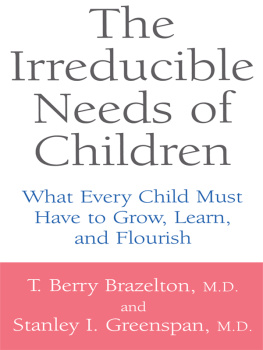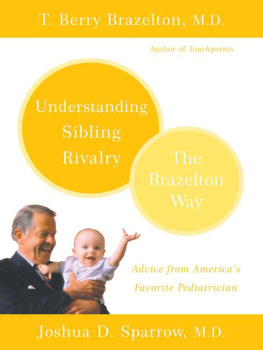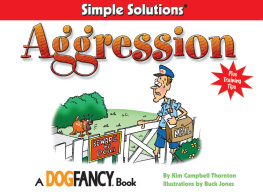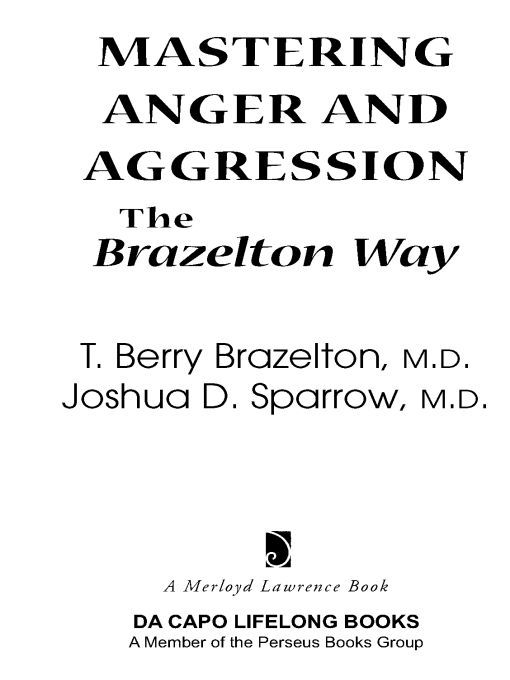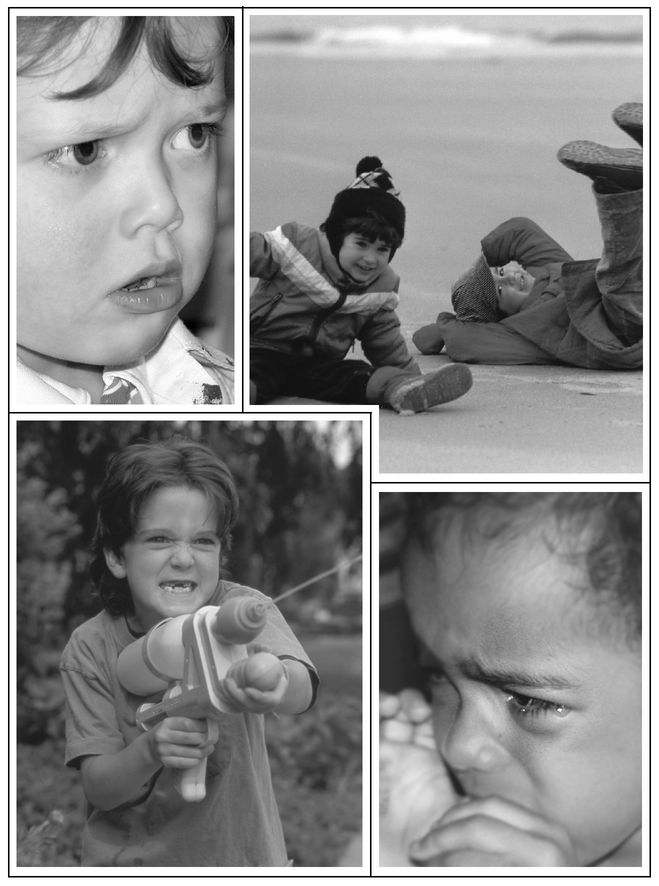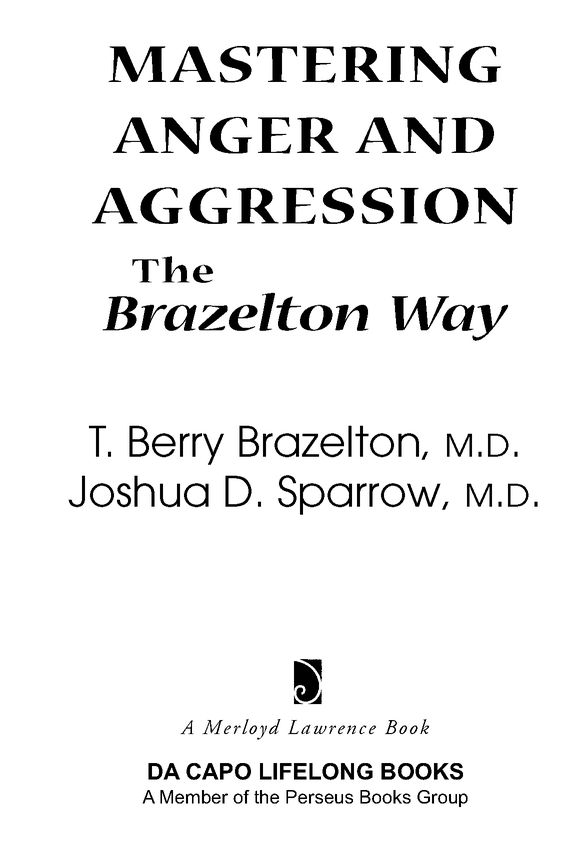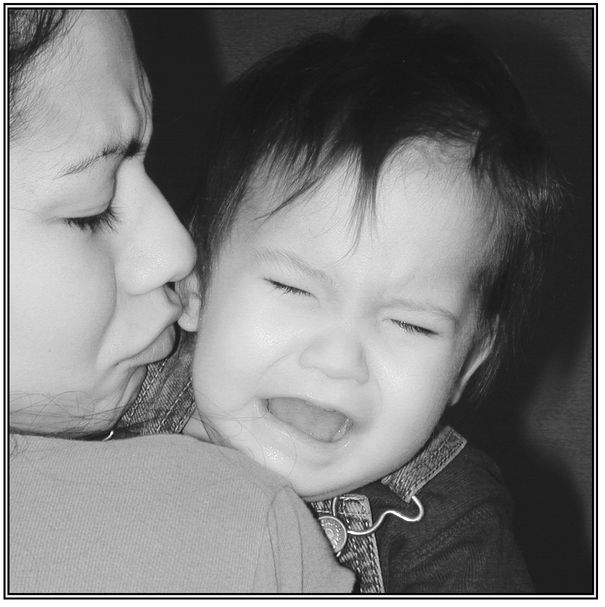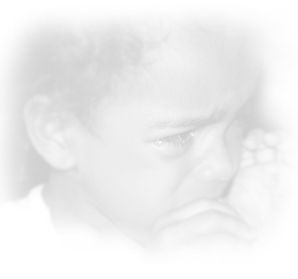Table of Contents
Also in the series
Discipline 0-7382-0783-7
Calming Your Fussy Baby 0-7382-0781-0
Understanding Sibling Rivalry 0-7382-1005-6
Feeding Your Child 0-7382-0919-8
Toilet Training 0-7382-0920-1
Sleep 0-7382-0782-9
Also in the series
Discipline 0-7382-0783-7
Calming Your Fussy Baby 0-7382-0781-0
Understanding Sibling Rivalry 0-7382-1005-6
Feeding Your Child 0-7382-0919-8
Toilet Training 0-7382-0920-1
Sleep 0-7382-0782-9
also by T. Berry Brazelton, M.D.
On Becoming a Family
The Growth of Attachment Before and After Birth
Infants and Mothers
Differences in Development
Toddlers and Parents
Declaration of Independence
Doctor and Child
To Listen to a Child
Understanding the Normal Problems of Growing Up
Working and Caring
What Every Baby Knows
Families, Crisis, and Caring
Touchpoints
Your Childs Emotional and Behavioral Development
Going to the Doctor
with Bertrand G. Cramer, M.D.
The Earliest Relationship
Parents, Infants, and the Drama of Early Attachment
with Stanley I. Greenspan
The Irreducible Needs of Children
also by T. Berry Brazelton, M.D., and Joshua D. Sparrow, M.D.
Touchpoints Three to Six
Your Childs Emotional and Behavioral Development
Calming Your Fussy Baby: The Brazelton Way
Sleep: The Brazelton Way
Discipline: The Brazelton Way
Toilet Training: The Brazelton Way
Feeding Your Child: The Brazelton Way
Understanding Sibling Rivalry: The Brazelton Way
This book is meant to complement, not substitute for, the advice given by your childs pediatrician. It should not be used as an alternative to appropriate medical care. The authors have exerted every effort to ensure that the information presented is accurate up to the time of publication. However, in light of ongoing research and the constant flow of information, it is possible that new findings may invalidate some of the data presented here. Before starting any treatment or new program, you should consult your pediatrician about your own childs health, symptoms, diagnosis, and treatment.
To the children and parents
who have taught us so much through the years
Acknowledgments
We would like to thank parents across the country for having first urged us to write these concise, accessible books on topics of the utmost importance to them, for without their vision they might never have been written. Thanks, too, go to Karin Ajmani, Geoffrey Canada, Marilyn Joseph and the Baby College staff, Karen Lawson and her late husband Bart, David Saltzman, and Caressa Singleton for their unwavering support for our work, and from whom we have learned so much. Special thanks go to Ivor Edmonds for his invaluable insights on self-defense for young children. As always we would again like to thank our editor, Merloyd Lawrence, for her wisdom and guidance. Finally, we wish to express our gratitude to our families, not only for their encouragement and patience, but for the lessons they have taught us that we have sought to impart in this book.
Preface
Ever since I wrote the first Touchpoints book, published in 1992, I have been asked by parents and professionals all over the country to write some short, practical books on the common challenges that parents face as they raise their children. Among the most common are crying, discipline, sleep, toilet training, feeding, sibling rivalry, and aggression.
In my years of pediatric practice, families have taught me that problems in these areas often arise predictably as a child develops. In these short books I have tried to address the problems that parents are bound to encounter as their children regress just before they make their next developmental leap. Each book describes these touchpointsof crying, discipline, sleep, toilet training, feeding, sibling rivalry, and aggressionso that parents can better understand their childs behavior. Each also offers specific suggestions on how parents can help their child master the challenges they face in these areas so that they can get back on track.
In general these books focus on the challenges of the first six years of life, though occasionally older childrens issues are referred to. In the final section, special problems are discussed, though these short books are not intended to cover these topics exhaustively. Instead, we hope that these books will serve as easy-to-use guides for parents to turn to as they face their childs growing pains, or touchpoints that signal exciting leaps of development.
As with Touchpoints Three to Six, I have invited Joshua Sparrow, MD, to co-author these books with me, to add his perspective as a child psychiatrist. Though difficulties such as temper tantrums, fighting, and biting, for example, are both common and predictable, they make great demands on parents. These kinds of problems are for the most part temporary and not serious, yet without support and understanding, they can overwhelm a family, and send a childs development seriously off course. It is our hope that the straightforward information provided in these books will help prevent those unnecessary derailments, and provide reassurance for parents in times of uncertainty, so that the excitement and joy of helping a young child grow can be rekindled.
CHAPTER 1
Helping Young Children Understand and Master Their Angry Feelings
In this book we will attempt to map out the times when anger and aggressive feelings surge to the top for children. Most adults think of anger as an ugly emotion, one to keep under cover. Parents are likely to be horrified at their childrens displays of hostility and loss of control. Yet anger is not only unavoidable, but necessary. There are many triggers for a childs predictable outbursts, and these become less upsetting when parents can anticipate them and understand how they can help their child learn to get them under control.
Anger not only alerts a child to danger and provides the necessary energy to respond to it, but it is a clear form of expression of himself as a person. Anger, at certain times in his development, becomes a childs way of establishing his independence. Parents will need to understand this purpose and work with it while providing firm limits, so their child can grow up feeling strong and independent, but safe in his outbursts. This book will lead parents through the touchpoints of angerwhen they surface, and what we need to do about them. At the point where we cant tolerate a childs aggression, our own anger can prompt us to say, Now its time for discipline, to make your anger safe. As they help their child understand and master his emotions, parents will use their own as their guide, and as a model for the child.


